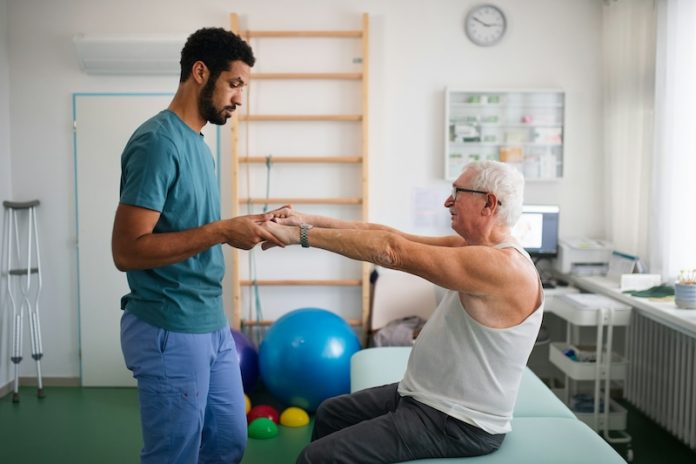
Researchers at the University of Alberta are developing new recovery strategies for stroke patients using a precision health approach.
This method tailors advice based on individual needs rather than a one-size-fits-all solution.
Victor Ezeugwu, an assistant professor in the Faculty of Rehabilitation Medicine, focuses on movement behavior in his research.
He points out the significant links between prolonged sitting and various health issues.
Ezeugwu emphasizes that traditional recovery methods, which push for high-intensity physical activity, often don’t work for everyone. Instead, his research supports a more personalized strategy that encourages increased daily movement to boost neuroplasticity and recovery.
In their study, Ezeugwu and his team explored the impact of movement on functional outcomes in patients recovering from strokes. They introduced a “sit less, move more” intervention and observed its effects.
Published in the journal Disability and Rehabilitation, their findings showed that just reallocating 30 to 40 minutes per day to walking can significantly improve mobility and gait speed in stroke patients.
Building on this, the researchers are now testing a “sit less, move more, sleep better” intervention. They aim to see how this strategy, implemented within the first week of stroke symptoms, affects the quality of life. The study protocol was published in PLOS One in late 2023.
Ezeugwu uses behavior change theories, traditionally applied to healthy populations, to support stroke patients in reducing sedentary time and increasing physical activity.
Research indicates that prolonged inactivity is harmful and linked to higher risks of diabetes, heart disease, and some cancers. Stroke recovery often involves limited movement, making it crucial to reduce sedentary behavior.
Most studies on stroke recovery focus on moderate to vigorous physical activity within six months after a stroke.
However, they often overlook how patients spend the majority of their day. Ezeugwu notes that exercise accounts for less than 5% of the day, while the remaining 95% is crucial, especially in the early stages of recovery.
To offer tailored recovery advice, Ezeugwu employs a precision health approach. This innovative method considers various health-related factors to customize diagnosis and treatment for individuals.
The team uses baseline activity monitoring within the first seven days of a stroke to gauge recovery progress. Ezeugwu believes that detailed, on-the-ground measurements of movement can provide better predictions of recovery outcomes.
Combining different markers, such as imaging and behavioral measures, may offer a more precise prediction of recovery success.
By integrating these methods, the researchers aim to create a more effective, personalized recovery plan for stroke patients, ultimately improving their quality of life and functional outcomes.
If you care about stroke, please read studies that diets high in flavonoids could help reduce stroke risk, and MIND diet could slow down cognitive decline after stroke.
For more health information, please see recent studies about antioxidants that could help reduce the risk of dementia, and tea and coffee may help lower your risk of stroke, dementia.
The research findings can be found in Disability and Rehabilitation.
Copyright © 2024 Knowridge Science Report. All rights reserved.



